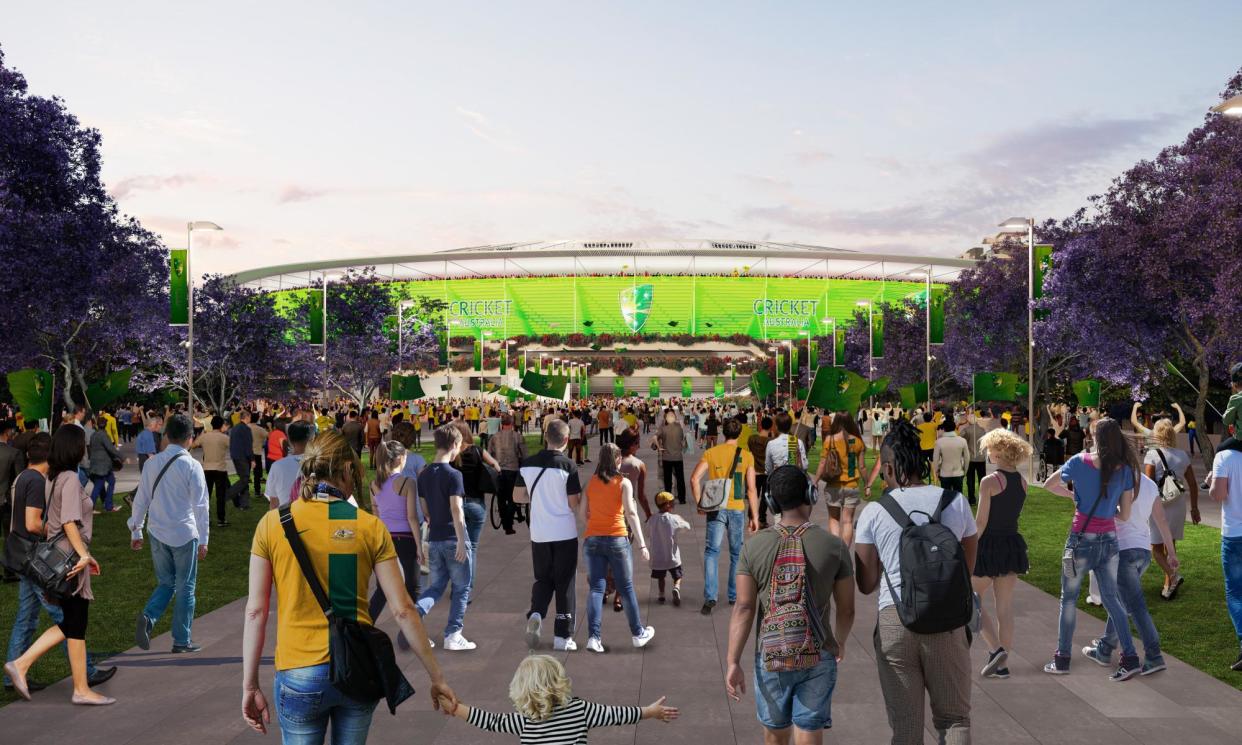Brisbane v the Olympics: Gabba shambles shows people power is hitting the 2032 Games

Denver, Colorado, is the only place to ever cancel the Olympic Games. The city had won the right to host the 1976 Winter Games, but withdrew amid mounting local opposition.
“We ought to say to the nation and the world, ‘We’re sorry … we made a mistake. Take the Games elsewhere,” state representative Bob Jackson told the Associated Press in 1971.
These days, there is no get-out clause for an Olympic host, even in the case of major cost blowouts or a deadly pandemic. Under the terms of the host city contract principles for Brisbane 2032, the International Olympic Committee can withdraw the games in certain circumstances. The organisers have no such right.
Related: Olympics boss tells Queensland to ditch $2.7bn plan for Gabba demolition and rebuild
This week, the IOC vice-president, John Coates, publicly advised the Queensland government to scrap its plans for a $2.7bn Olympic stadium to replace the ageing Gabba, and instead use existing facilities for the opening ceremony and athletics events in 2032.
The state had been reviewing its infrastructure plans, but Coates’s intervention points to a deeper concern that the mood in Brisbane was fast heading the way of Denver. He told the Courier Mail the Gabba rebuild risked turning people against the Games and acknowledged the Olympic movement was “on the nose” in Brisbane.
So how did we get here?
The decision by the new premier, Steven Miles, to review Olympic plans followed a series of political brawls and bungled announcements that had mired the first few years of games preparations.
Amid growing concerns that hosting the Olympics had become cost-prohibitive – even ruinous for some host cities – the IOC, with the strong influence of Coates, devised a “new norm” approach with the aim of making the event more sustainable. Host cities were encouraged to use existing infrastructure, rather than build new edifices.
After Brisbane became the “priority bidder”, the then-Queensland premier, Annastacia Palaszczuk, unilaterally announced the centrepiece of the city’s plans would be the Gabba rebuild. Ted O’Brien, the former Morrison government special envoy for the Olympics, said this week the announcement “nearly killed” the city’s bid for the games when it “blind-sided” everyone.
“It flew in the face of everything we were pitching to the IOC about avoiding a big spend on venues and it also broke faith with the people of Queensland who had been assured the 2032 Games would not become a spendathon with taxpayer money,” he said.
Related: All options on the table as review of ‘divisive’ Brisbane Olympics venues plan begins
The state had told the IOC it would establish an independent coordination authority to oversee games projects; then backtracked and decided they would be better managed by the state government; then said it would set up the oversight body after all.
The plan to redevelop the Gabba had always been – under the surface – more about cricket and Australian rules football than the Olympics. The ground is the traditional host of the first cricket Test of the Australian summer, but has lost the right in recent years due to concerns about outdated facilities and transport links.
But the need to find an interim home for both codes while the stadium was redeveloped also led the state government into problems. The government announced – apparently with little notice to anyone – that the Brisbane showgrounds would also be redeveloped to provide a temporary home ground for the Brisbane Lions, and for Test cricket. The only wrinkle was that the council and those codes would have to cough up and pay for most of it.
The Brisbane lord mayor, Adrian Schrinner, withdrew his support for the Gabba rebuild and resigned from a games delivery forum over the announcement. A week later, Palaszczuk resigned as premier.
Since taking over, Miles has sought to salvage the process, re-announcing the independent delivery authority, and ordering the review into infrastructure plans, including the Gabba.
Growing opposition
No significant public polling has ever sought to test the Brisbane community’s support for the Olympics, but the speed of recent pivots shows there is genuine concern that people are increasingly uneasy about the games.
One key reason is broader concern about housing and cost-of-living pressures. Miles this week announced a landmark housing policy that demands more homes be built. It had become increasingly hard to justify spending $2.7bn – likely more – while the number of people in crisis accommodation was growing, and while homes were becoming less affordable.
Related: Why is the Gabba rebuild plan so controversial and what’s next in the Brisbane Olympics brawl?
The idea of building a new stadium when builders and tradespeople are also scarce played to the same concerns – we need those people focused on addressing housing supply.
Neighbourhood concern has also been a significant factor. The fiercest opposition to the Gabba rebuild came from the Woolloongabba area – a suburb represented by Greens at local, state and federal levels – where parkland would be taken over by a warmup track, and a 127-year-old school was to be demolished.
If the Gabba plan is ditched, it would amount to a massive win for these campaigns – possibly the biggest win for the people v the Olympic movement since Denver.
But it should also serve as a clear warning to governments and Olympic organisers. If the next eight years are as shambolic as the past few, Brisbane may yet reach the point where we raise our hand and say “sorry, we made a mistake”.


